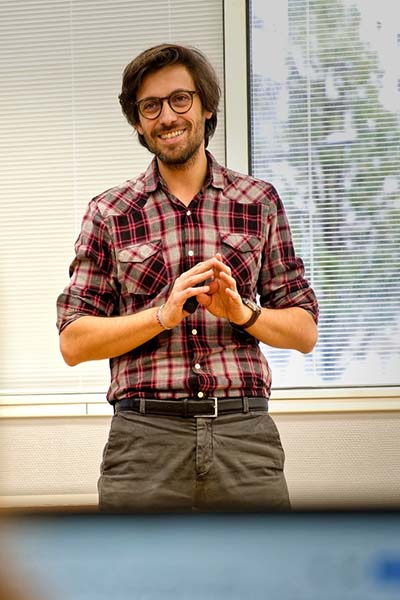The European Research Council (ERC) has just communicated the list of "Consolidator" grant recipients. Among them, Mathieu Couttenier's project: ArtiMinDev
ERC Consolidator grants 2022: 657 M€ for the 321 laureates, including 41 hosted in France. As in 2021, France is the third most represented host country among the beneficiaries, after Germany (62 laureates, +1 compared to 2021) and the United Kingdom (45, +4); out of a total of 21 countries (against 24 in 2021).
Projet ArtiMinDev
Artisanal Mines, Economic Development and Social Impact

Mathieu Couttenier, Professor, Department of Economics, École normale supérieure de Lyon, Head of the Center for Economic Research on Governance, Inequality and Conflict.
The adoption of green energy technologies worldwide is going to have significant consequences for mineral demand in a near future. The booming sector of artisanal and small-scale mines (ASM) that employs around 40 million people, represents about 20% of the global gold and diamond supply, 25% of tantalum and tin, and up to 80% of sapphire. Those numbers make the ASM sector a pivotal actor in the energy transition.
The aim of ArtiMinDev project is to analyze the economic and social impacts of ASM in sub-Saharan African countries. Up until now, the absence of exhaustive time-varying information on the location of ASM has prevented researchers in social sciences from precisely quantifying the contribution of this activity to economic development.
The ambition of this project is twofold. First, I intend to map the opening/closing of ASM in sub-Saharan African countries over the period 2000-2020 with exact information on location (GPS coordinates). Two other crucial information are also collected: the size and the mineral extracted from each ASM. I will use machine learning techniques and satellite image time series to identify sediment and open pit-mining activities. Second, equipped with this ground-breaking dataset, I aim to provide systematic and large-scale evidence of the impact of ASM on violence and conflict; environmental degradation and health; and internal migration.
The proposal’s objectives, grounded in quantitative economics, are spanning several literatures from a wide variety of disciplines, by combining state-of-the-art machine learning techniques and remote sensing data. I expect the methodologies and the results to push the research frontier in several dimensions. Moreover, the conclusions drawn from the project would be highly relevant for policy-makers and NGOs aiming to improve the monitoring of those mining activities and their impacts on conflict, health and environmental degradation.
 ERC Consolidator Grants
ERC Consolidator Grants
The ERC Consolidator Grants are awarded to outstanding researchers of any nationality and age, with at least seven and up to twelve years of experience after PhD, and a scientific track record showing great promise. Research must be conducted in a public or private research organisation located in one of the EU Member States or “Associated” Countries. The funding - up to €2 million per grant, plus in some cases an additional €1 million for start-up costs - is provided for up to five years and mostly covers the employment of researchers and other staff to consolidate the grantees' teams.






